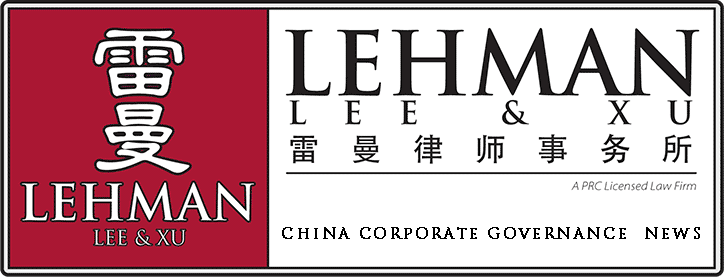SHANGHAI—Shanghai-based developer Shui On Land 0272.HK -0.77%Shui On Land Ltd.Hong Kong $2.57 -0.02-0.77% Nov. 8, 2013 10:10 am Volume : 131,716 P/E Ratio 6.75Market Cap $20.88 Billion Dividend Yield 1.68% Rev. per Employee $7,057,73010/31/13 Brookfield Buys Stake in Prime...More quote details and news »0272.HK in Your ValueYour Change Short position said Thursday that it had sold a nearly 22% interest in a unit that manages its prime Xintiandi commercial property, in a $500 million deal that analysts said highlights concerns over its cash flow.
Shui On said that Canada's Brookfield Property Partners BPY -0.57%Brookfield Property Partners L.P.U.S.: NYSE $19.03 -0.11-0.57% Nov. 7, 2013 4:03 pm Volume (Delayed 15m) : 283,492 P/E Ratio 1.36Market Cap $1.54 Billion Dividend Yield 5.25% Rev. per Employee N/A10/31/13 Brookfield Buys Stake in Prime...09/30/13 CFO Moves: Brookfield Property...09/30/13 Canada Stocks to Watch: Pacifi...More quote details and news »BPY in Your ValueYour Change Short position had agreed to invest in the unit, called China Xintiandi, which operates Shui On Land's crown jewel, a Shanghai development called Shanghai Xintiandi, as well as a number of other commercial properties.
The developer said the proceeds would be used to repay debt, property development and for general corporate purposes. It also said that the investment will "improve the cash position of the group and strengthen the overall balance sheet of the company," as well as fund any future acquisitions by China Xintiandi.
Analysts focused on the cash-flow issue.
"Shui On Land faced a slower rate of return in its projects elsewhere and its profit growth lagged behind peers due to relocation problems and complexities in building-preservation projects," said Chen Geng, an analyst at Philip Securities. "The market is not too optimistic about the company's cash flow prospects, and the stake sale is seen as a compromise." He said that the sale of the prized asset was unexpected.
In a written statement, Philip Wong, chief executive officer of China Xintiandi, said the Brookfield deal "is a ringing endorsement of the quality and value of our commercial property assets, as well as China Xintiandi's business model and management capability. The investment will set a valuation benchmark for our commercial-asset portfolio."
Shanghai Xintiandi, spearheaded by real estate mogul Vincent Lo, is a shopping, dining and entertainment complex in the heart of the east China city. One of its key features has been the preservation of the city's historical "Shikumen" homes and alleys. It has spawned numerous copycat projects around China.
Last year, Shui On Land announced it would spin off its commercial property operation, creating China Xintiandi to manage the portfolio and separating it from the property-development side of the company.
Mr. Lo said earlier this year that Shui On had been considering a Hong Kong listing of China Xintiandi pending improved market conditions, but a public offering hasn't materialized.
China Xintiandi also includes the major office buildings Shui On Plaza and The Hub, as well as a retail and office project just outside the city's Hongqiao airport and railway station. It has a portfolio of 663,000 square meters of leasable gross floor area valued at 26.3 billion yuan ($4.3 billion).
The deal calls for Brookfield to receive convertible perpetual securities issued by the China Xintiandi, representing 21.67% of the unit's issued share capital, as well as 415 million warrants issued by Shui On that could be converted into an equal number of Shui On shares, Shui On Land said in a stock exchange announcement. If exercised, that would give Brookfield a 4.9% stake in Shui On.
Brookfield and Shui On Land also have the option of investing an additional $250 million in China Xintiandi in around two years time, pending certain conditions, the statement said.
Hong Kong-listed Shui On is reorganizing its operations in China. It had faced long delays in some of its projects as a result of difficulties in moving residents out ahead of the redevelopment.
Brookfield, a global commercial real estate owner and operator, will also take part in managing the China Xintiandi portfolio and will have two directors on China Xintiandi's 10-person board as long as it maintains at least 10% of China Xintiandi's shares.
"Brookfield will, as a long-term partner to the group, make significant contributions in a wide range of areas such as real estate operations, financial management, information technology and corporate governance," Shui On said.
Brookfield is a relatively unknown investor in the Chinese real-estate market and the deal appears to be its first major investment in China, fund managers said.
Brookfield said the deal gives it exposure to high-quality assets in Shanghai while allowing an opportunity for future growth through asset purchases and strategic partnerships.
"China is an important market in Brookfield's long-term growth. The partnership with Shui On Land to invest into China Xintiandi is an ideal way for us to enter this market," said Bill Powell, Australasian chief executive officer of Brookfield
Source: http://online.wsj.com/news/articles/SB10001424052702304527504579169432280430994

